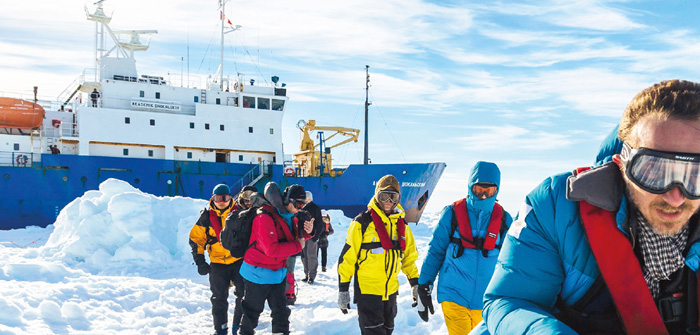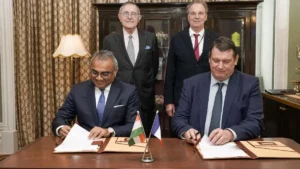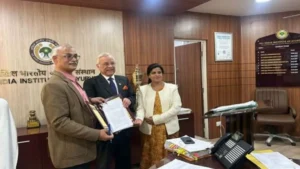This December, India’s 43rd Antarctic expedition, led by the National Centre for Polar and Ocean Research, welcomed scientists from Mauritius and Bangladesh onboard, marking a significant step in international polar research collaboration.
Building on Collaborative Foundations
This initiative stems from the maiden Colombo Security Conclave (CSC) Oceanographers and Hydrographers conference held in 2022, which laid the groundwork for scientific partnerships among member nations. This conference facilitated joint endeavors in oceanographic and hydrographic studies, paving the way for further cooperation.
Prior Collaboration Sets the Stage
In June 2023, scientists from CSC nations embarked on a month-long scientific voyage in the Indian Ocean Region aboard the ‘Sagar Nidhi,’ solidifying the collaborative spirit within the group.
Deep Dive into Polar Science
The scientists joining the Antarctic expedition will spend 3-4 months actively engaged in collaborative research across various polar science disciplines. Their focus will lie on gaining insights into polar logistics and addressing the unique challenges posed by the harsh environment of the Antarctic.
Important Questions Related to Exams
- Which international conference laid the foundation for the collaboration between India, Mauritius, and Bangladesh in polar research?
- What was the name of the scientific expedition in the Indian Ocean that preceded the Antarctic mission?
- For what approximate duration will the scientists from Mauritius and Bangladesh be actively engaged in research during the Antarctic expedition?
Please provide your answers in the comment section!!




 Why the Adani-Marseille Pact Could Be a ...
Why the Adani-Marseille Pact Could Be a ...
 AIIA Signs MoU with General Insurance Co...
AIIA Signs MoU with General Insurance Co...
 Bharat Taxi Partners with AAI to Launch ...
Bharat Taxi Partners with AAI to Launch ...








